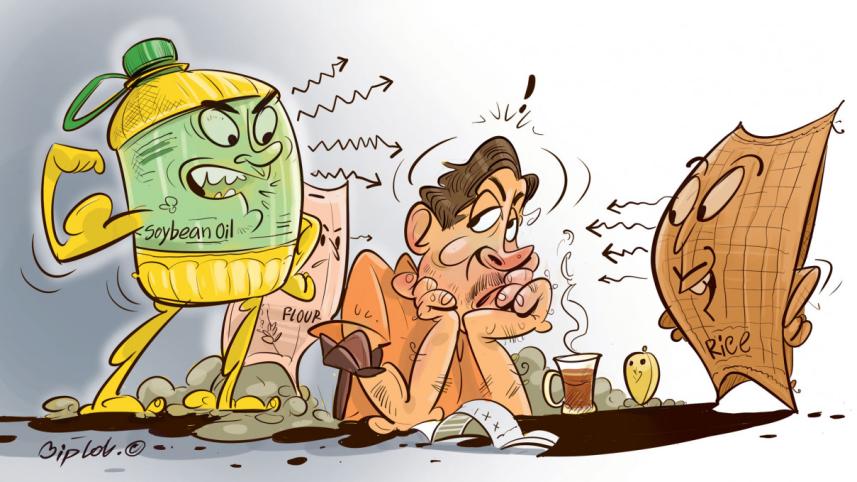Dishonest traders, ready excuses

We, in Bangladesh, are used to the whims and greed of the dishonest traders and businessmen, particularly those who deal in food items and other consumer goods. They never miss a chance to raise prices on ever so flimsy grounds, like an odd thunder shower or a wildcat strike by transport owners. We have often seen prices of fast-moving consumer items go up, in spite of adequate reserve and normal demand. Unfortunately, in a sellers' market, consumers are captive to the syndicate's machinations that dictate the supply of essential goods. Regrettably, the administration, despite assurances, have not been able to rein in this wayward group of traders who continue to call the shots and dictate prices at will.
Noticeable is the disturbing fact that prices of food items go up before every Ramadan. Admittedly, demands during the fasting month go up considerably, but actually seldom outrun the supply. And unlike in other countries, where economic laws are allowed to function, in Bangladesh prices that go up once never come down with the demand curve flattening out. And this has much to do with the state's inability to make the market mechanism function as per its natural manner.
It is therefore, disquieting, though not surprising, to see that the prices of essential goods are going up once again. It was not unexpected, with Ramadan less than a month away, but the added excuse at the disposal of the traders is the ongoing Russo-Ukraine war. Admittedly, the conflict will have an effect on the market—to a greater or lesser degree—but it defies logic that the war has been going on for hardly a fortnight, and waves have already reached our shores. Are we to believe that our stock position is so poor that it can't withstand an erratic market for a short time? Experts disagree that the war is the cause. They believe that the lag time for the effect of the current conflict between Russia and Ukraine is at least three weeks. Indeed, the pandemic had disrupted the supply chain, but the rise in prices in Bangladesh has been much more than the international prices.
The real cause is the unmitigated greed of a section of traders. It is, therefore, immoral—and illegal—on their part to exploit the situation and milk the consumers. How do the traders account for the hike in cost of even those items that have not been imported from these two countries in the last eight months? We believe that the administration at the central as well as the local level should start monitoring the market strictly, instead of dispensing homilies to the traders and consumers. Dishonest traders must be brought to account and hoarding must be dealt with severely. At the planning level, all the steps of supply chain management should be strictly conformed to, to offset the consequences of supply disruption.



 For all latest news, follow The Daily Star's Google News channel.
For all latest news, follow The Daily Star's Google News channel.
Comments